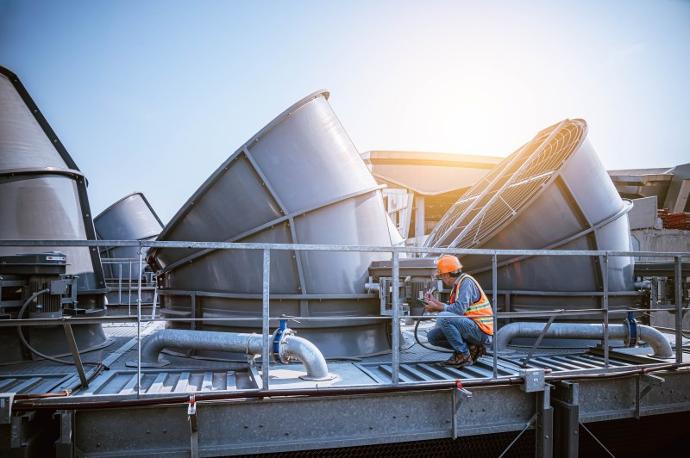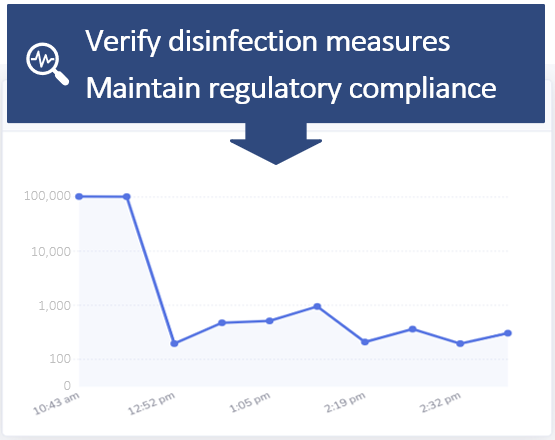Effective Legionella Surveillance in Cooling Towers
Industry
rqmicro.COUNT
enables cooling tower operators to monitor the presence of Legionella with reliable results generated on-site or in labs within 2 hours.
Cooling towers use evaporation to remove heat energy from water and thereby release aerosols into the atmosphere. If Legionella is present, the aerosolized water can spread the bacteria over miles and endanger surrounding residents. Regular disinfection and cooling tower maintenance protects facility operators, visitors, and residents from exposure to Legionella . The required frequency of measures depends on the cooling load, use of biocides, the environmental conditions present in the area where the cooling tower is located and the cooling tower’s design.
Cleaning, disinfecting, and remediating cooling towers involves a hierarchy of protocols that form a water hygiene management program. rqmicro.COUNT proposes a solution to determine and control the effectiveness of water hygiene management based on direct insight provided by single-cell counting of viable bacteria.
Download the brochure
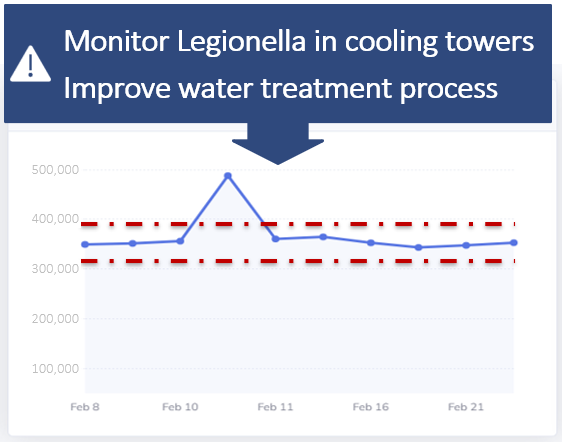
42. BlmSchV (Germany)
Verordnung über Verdunstungskühlanlagen, Kühltürme und Nassabscheider - 42. BImSchV
The VDI Guideline 4250 Section 2 in support of the 42. ordinance for the implementation of the Federal Immission Control Act, 42. BlmSchV, includes flow cytometry and specific cell separation technology deployed in the rqmicro.COUNT instrument.
rqmicro.COUNT enables effective hygiene management in cooling towers through:
- Fast detection of contamination with results immediately available online
- Quantitative monitoring of Legionella and total bacteria to optimize treatments, plan maintenance and reduce costs
- Implementation of effective procedures to mitigate health, operational, financial and regulatory risks
Benefits
Improved risk assessment and hazard avoidance of potential Legionella growth in wastewater treatment plants
Continuously monitoring the treatment ensures a cost-effective and sustainable operation
Chemical dosing and measuring the success of cooling water treatments
Reduction of health risks to employees, visitors, guests, patients

Improved risk assessment and hazard avoidance of potential Legionella growth in wastewater treatment plants

Continuously monitoring the treatment ensures a cost-effective and sustainable operation
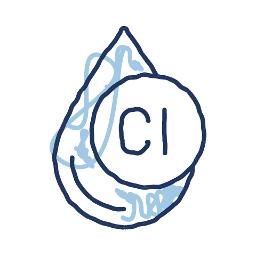
Chemical dosing and measuring the success of cooling water treatments
Rapid Microbiology Tests for the Cooling Tower Monitoring
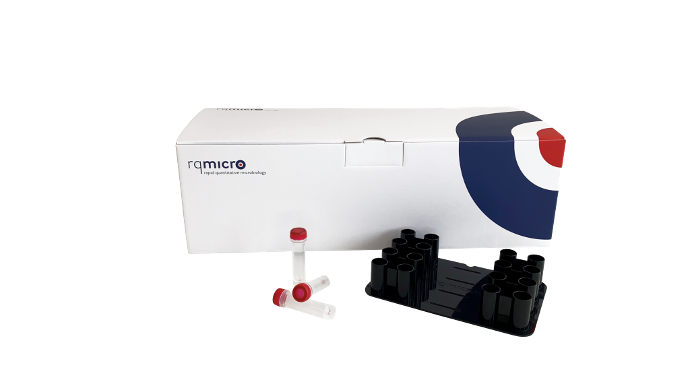
Intact Cell Count
Test kit for the rapid and quantitative detection of total viable bacteria in water samples.
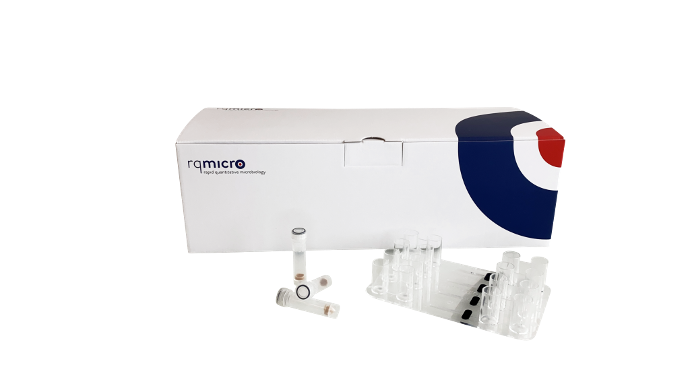
Legionella Test Kits
Test kits for the rapid and quantitative detection of Legionella in water samples.
Webinar On Demand
Discover our on-demand webinars for expert knowledge on rqmicro.COUNT and rapid microbiological water testing.
Take the first step towards gaining a deeper understanding of what's affecting your water system.

Christophe Gutknecht
Senior Sales Manager
+41 78 229 51 15
christophe.gutknecht@rqmicro.com
Connect on LinkedIn
Book a consultation with Christophe
Recommended for You

Risk Monitoring in Industrial Cooling Towers
With rqmicro.COUNT, industrial cooling tower operators have a tool that can help them quickly and efficiently quantify bacteria such as Legionella using flow cytometry. This monitoring approach allows several key benefits.

Controlling & Monitoring Legionella in Cooling Towers
At rqmicro, we have developed tests that enable cooling tower operators to monitor the presence of Legionella with reliable results generated on-site or in labs within 2 hours.

Monitoring Microbiologically Influenced Corrosion (MIC) with Intact Cell Count (ICC)
rqmicro recommends that industry managers perform routine microbial monitoring using the rqmicro ICC test kits and the rqmicro.COUNT instrument.
